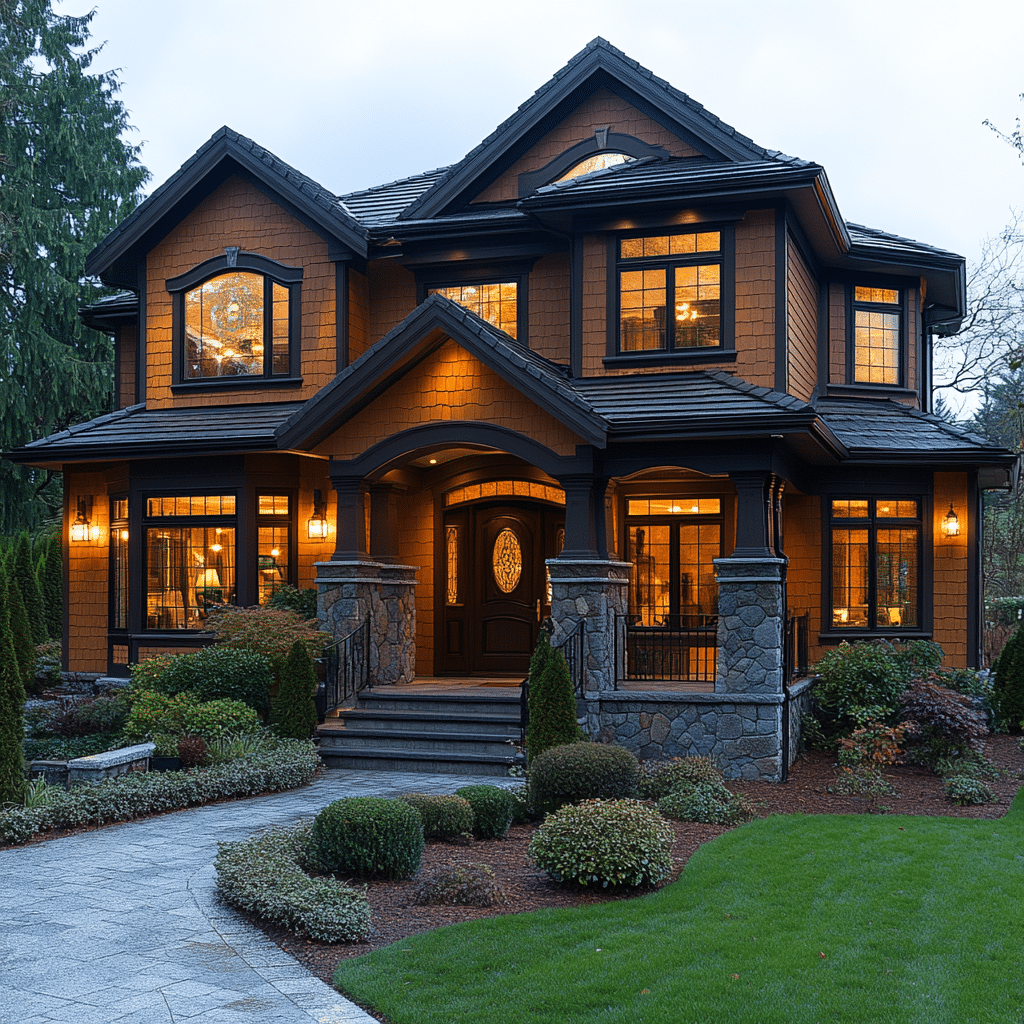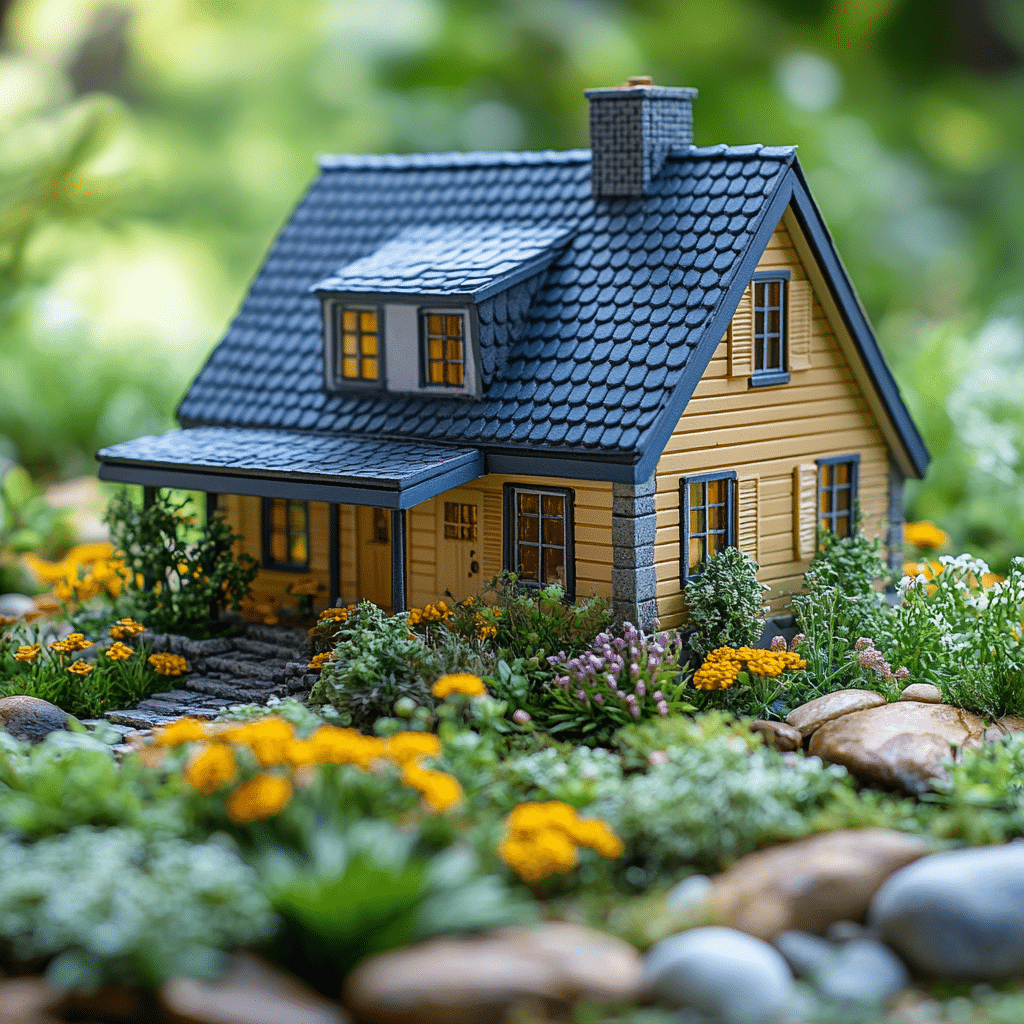
Understanding How Much Down Do You Need For A House?
When you’re dreaming of that perfect home, one of the first questions that pops up is, “How much down do you need for a house?” The answer isn’t as straightforward as you might think. It can vary depending on the type of mortgage, lender policies, and your financial situation. Let’s break it down in terms that’s easy to digest.
A common recommendation for conventional loans is to put down 20% of the home’s purchase price. This strategy eliminates private mortgage insurance (PMI), which will save you money down the road. But for many buyers, especially first-timers, that kind of cash can seem like climbing Everest. FHA loans, for instance, only require 3.5% down, making homeownership a tad more accessible. If you’re a veteran, you’re in luck—VA loans could allow you to buy with zero down payment.
Knowing your options is half the battle in understanding how much down you need for a house. Certain lenders and loan programs tailor to different needs. If you’re not careful and don’t explore every option, you could miss out on the best possible deal. Keep in mind; sometimes, the lender’s requirements or state assistance programs can bring down that initial monetary requirement even further.

Top 7 Factors Influencing Your Down Payment
Different mortgage types can drastically change how much down you need. Conventional loans typically require 20% if you want to avoid PMI. However, if you’re looking at an FHA loan, you’ll only need a mere 3.5%, which can be appealing to those who are just starting out in the property market. Don’t forget about VA loans; they’re an incredible option that allows qualified veterans to obtain homes without any down payment!
Your dream home’s price tag can shake up your down payment requirement. For example, if you’re eyeing a home in a high-price region like San Francisco that costs $1.5 million, you’re looking at a substantial $300,000 down payment if you go the conventional route. In contrast, a lower-priced area, such as Oklahoma City, might only require $15,000 for a home costing $300,000 with a 5% down payment. The location truly matters!
A good credit score can be your golden ticket. If you’ve got a score around 740, you could snag better mortgage terms. Higher credit scores generally translate into lower down payment options. Lenders often favor borrowers with solid credit histories, allowing you to bypass PMI with just a 5% down payment.
Lenders have varying criteria that can sway your down payment decisions. While some credit unions may offer as little as 1% for buyers with good credit scores, others might lean towards requiring bigger down payments. Get familiar with the nuances specific to the lender you choose.
Where you’re buying plays a significant role in your down payment obligation. High-cost markets may offer assistance programs for down payments to help eligible buyers ease their burden. Consider exploring local options because rural areas come with their unique set of favorable financing options as well.
Many states offer programs aimed at first-time buyers. Take California’s California Housing Finance Agency (CalHFA), for example, which offers up to 3% assistance on down payments. These programs are a lifesaver and help to lessen the financial load—so, make sure to check what’s available in your area!
The real estate market is ever-changing. In a seller’s market where homes sell like hotcakes, buyers might feel the urge to throw down larger amounts to make their offer stand out. On the flip side, in a buyer’s market where inventory exceeds demand, you might find sellers more willing to consider lower down payment offers.
The Importance of Credit Score: How Good is Your Credit if You Got a 740?
So, what does it mean for your home-buying journey if you’ve got a credit score of 740? Well, it’s like holding a VIP pass at a concert! First off, your interest rates will likely be lower—around 0.25% lower than the average. If you’re looking at a $300,000 mortgage over 30 years, that can save you thousands in interest payments.
Moreover, a score this strong opens up more doors for down payment flexibility. You might be able to secure a mortgage with as little as 5% down without needing PMI, leaving you with extra cash for home repairs or furnishings.
And don’t forget, a higher credit score can significantly improve your approval odds. Lenders love a solid credit history, which usually translates to better interest rates and more favorable terms. To put it bluntly, your credit score can either make or break your mortgage experience, so keep it in good standing.
Getting Closer to Your Dream Home
Determining how much down you need for a house doesn’t have to be intimidating. Gearing up with knowledge about various down payment options and understanding your financial landscape is empowering. Whether it’s choosing the right mortgage product or maximizing your credit score, making well-informed decisions is crucial.
Finding your perfect home shouldn’t break the bank. By exploring all available financing options and closely examining your local market conditions, you can balance making a solid investment while fulfilling your dream of homeownership.
Think of this journey as a chance for financial growth. The more you learn about mortgage intricacies, down payments, and credit ratings, the more confident you’ll feel as you get closer to that dream home. Embrace the adventure, and remember—an informed buyer is a powerful buyer.
How Much Down Do You Need For A House
The Basics of Down Payments
So, how much down do you need for a house? To put it simply, the answer can fluctuate, but many folks aim for about 20%. This magic number not only helps you dodge private mortgage insurance (PMI) but also signals to lenders that you’re serious about your investment. Interested in uncovering how much you might qualify for? It can vary widely, so checking out How much do I qualify For a home loan could offer valuable insights. If you’re strapped for cash but still eager to snag that dream pad, don’t fret! Loans like FHA might allow down payments as low as 3.5%. If you’re curious about qualifying for one of these, take a peek at How do You qualify For an Fha loan for all the juicy details.
Fun Facts About Home Buying
Did you know that nearly 30% of homebuyers put down 10% or less? That’s a significant chunk! And while it might seem like a gamble, often the decision depends on your financial situation and goals. Homeownership isn’t just about the down payment, though. If you’re ready to jump into this journey, you’ll also want to know How do I get Pre approved For home loan—it’s a crucial step in the process. For instance, considering how much down do you need for a house can also vary based on where you’re buying. States have different tax rates, like the Arkansas tax rate, that might impact your overall budget as well.
Exploring the Market
In today’s market, there’s more than just the traditional routes available for first-time buyers. Innovative home models, or as some call them, house Models, are popping up that cater to various budgets and styles, reshaping what we see as affordable living. Plus, understanding what “buying a house what does it mean strongest on available funds” means can give you that edge when making an offer. Remember, being informed can make or break your deal. Oh! And before you get too lost in the hunt, make sure to ponder How much can I get approved For a home loan—because knowledge is power, my friend!




